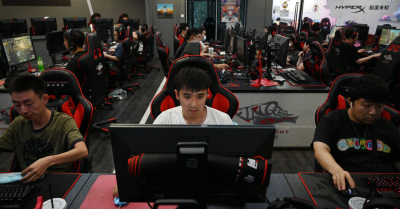纽约时报中文网 - 英文原版-英Will China Ease Its New Video Game Controls Investors Think So
December 28, 2023 3 min 587 words
这篇报道揭示了中国对新的视频游戏监管措施的可能调整,引起了投资者的关注。中国近年来在游戏行业实施了一系列严格的控制措施,对游戏时间和内容进行限制,导致游戏开发商和投资者的担忧。报道中提到的可能松绑信号,似乎为行业带来了一丝喘息之机。然而,这也凸显了中国政府在娱乐产业方面的强大干预能力,一时宽松并不代表长远的放松。在这一动态的大环境下,投资者应保持警惕,时刻关注政策的变化,以更好地适应这个风云变幻的市场。中国娱乐产业的未来发展仍取决于政府政策的导向,投资者需谨慎评估风险和机遇。
The stock prices of Chinese video game companies rebounded Wednesday after investors seized on signals that the government was having second thoughts about proposed regulations on gaming.
Since the weekend, regulators have tried to calm the market after shares of the two largest video game companies, Tencent and Netease, plunged on Friday.
When trading resumed after the four-day holiday weekend in Hong Kong, Tencent rose about 4 percent and Netease jumped 12 percent, recovering some of their losses.
The events of the past several days underline the push-and-pull forces in Chinese policymaking. The country’s top leaders have acknowledged that they need to stabilize the economy, which has been slow to recover from being virtually locked down during the Covid pandemic. But the government’s tight control of how companies do business continues to inject uncertainty into the markets.
China’s National Press and Publication Administration, which issues licenses to game publishers and oversees the industry, unveiled a proposal on Friday aimed at effectively reducing how much people spend playing games. The plan took the industry by surprise, and investors dumped tens of billions of dollars in company stock.
The regulator issued a statement on Saturday stressing that the draft rules aim to “promote the prosperity and healthy development of the industry,” and said it was “listening to more opinions comprehensively and improving regulations and provisions.”
Then on Monday, the agency announced that it had licensed about 100 new games, after licensing 40 others on Friday. And a semiofficial association affiliated with the agency said the additional game approvals were “positive signals” that the agency supported the industry.
The new regulations would cap how much money users could spend within games on things like upgrading the features of characters or procuring virtual weapons or other things used by the characters. It would also ban rewards that companies use to entice players to return. The proposal did not specify a spending cap.
“The draft regulations would inevitably lead to changes in current practices and potential short-term revenue losses,” said Xiao Lei, assistant professor at the University of Hong Kong’s business school.
But, he added, their impact might be less than feared, as the authorities could adjust or drop some of the provisions. Consumer demand for games and the social interactions they allow would remain unaffected, he added.
Analysts from Nomura, a Japanese bank, said in a report on Tuesday that the rules could “significantly impair” Chinese video game companies’ ability to make money.
The “fire-quenching measures” that the government has rolled out since Friday, Nomura added, will ease investor concerns but won’t remove the shadow it has thrown over China’s video game sector.
The industry is still reeling from restrictions first imposed in 2019 aimed at what the government deemed was an online gaming addiction among minors, as well as a broader crackdown against tech companies. Regulators also stymied publishers by not issuing any new game licenses for an eight-month stretch that ended in April 2022.
Tencent and Netease have downplayed the impact of the proposed regulations.
The draft rules did not “fundamentally change the game’s business model, operating rhythm or other key elements,” Vigo Zhang, vice president of Tencent Games, said in a statement on Friday. Netease said over the weekend that the proposal would not have any substantial impact on its business, adding that it would share its views with the authorities.
The regulatory agency said it would accept comments on the proposal until Jan. 22.

